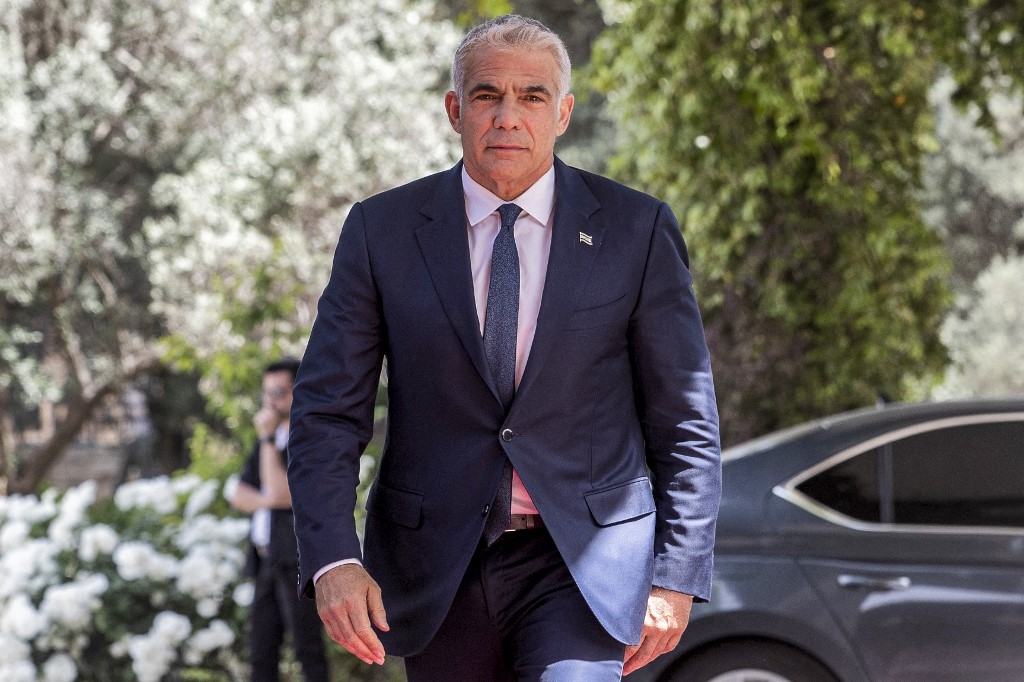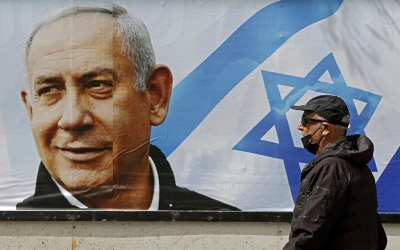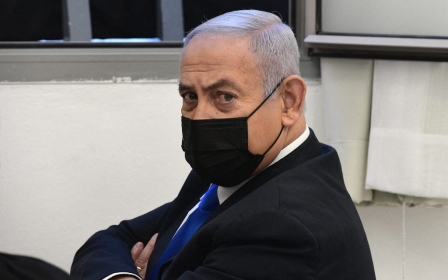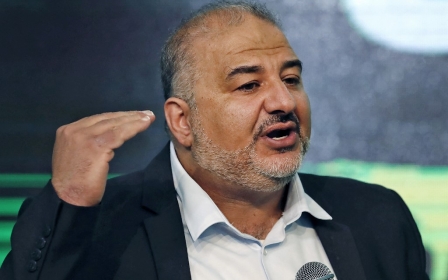Israel's president taps centrist Yair Lapid to form unity government

Israel's president has asked centrist Yair Lapid to try to form a new government, following Prime Minister Benjamin Netanyahu's failure to do so by Tuesday's midnight deadline.
President Reuven Rivlin tapped Lapid, one of Netanyahu's strongest rivals, on Wednesday, giving him 28 days to form a coalition.
Netanyahu, 71, had been fighting to hold on to office throughout the four inconclusive elections that have taken place in the past two years but had been unable to build a majority coalition in Israel's 120-seat parliament.
In a televised address on Wednesday, President Rivlin said he was confident that Lapid, a former television presenter and finance minister, could do so, as the lawmaker is currently just five seats away from forming a majority coalition.
'After two years of ongoing political nightmare, Israeli society is wounded'
-Yair Lapid, Yesh Atid Party
"It is clear that parliament member Yair Lapid could form a government that has the confidence of the Knesset despite there being many difficulties," Rivlin said.
New MEE newsletter: Jerusalem Dispatch
Sign up to get the latest insights and analysis on Israel-Palestine, alongside Turkey Unpacked and other MEE newsletters
Lapid, 57, heads the Yesh Atid Party, which finished second with 17 parliamentary seats, compared with 30 for Netanyahu's Likud in the March election.
Lapid welcomed the mandate in a post to Twitter on Wednesday, saying he was ready to unite Israel's "right, left, and center", following Netanyahu's 12-year rule, which ended in a fierce power struggle that splintered the country's right-wing.
"We need a government that will prove to us that the fact that we are different from each other is not a weakness, but a source of Israel's power," Lapid said in Hebrew.
"After two years of ongoing political nightmare, Israeli society is wounded," he continued, adding that a unity government "is not a compromise - it is a goal".
Lapid-Bennet power share?
Netanyahu's 28-day mandate to put together a coalition ran out at midnight after he failed to agree to terms with potential right-wing partners, opening the way for Rivlin to assign the task to another member of parliament.
A power-sharing agreement is still a possibility, however, as Lapid works to put together a majority coalition.
If needed, one such agreement could see Lapid rotate in office with ultranationalist Naftali Bennett, 49, of the far-right Yamina Party.
Rivlin met with the two separately on Wednesday, as each asked to lead coalition talks, the president said.
"I have just spoken to Yair Lapid and informed him that I am entrusting him with forming a government, whether this is a government that he will head at the beginning, or a government headed by someone else first in which he will serve as alternate prime minister," Rivlin said in his address.
After talking with Rivlin, Bennett went on television to appeal to Netanyahu's current right-wing and religious allies to join a "national unity government", saying he wanted to avoid a new election.
There was no guarantee that a potential patchwork coalition of left-wing, centrist and right-wing parties outside Netanyahu's caretaker government could bridge their deep political differences and unseat him.
Netanyahu and his opponents have both courted the support of parties representing Israel's 20 percent Arab minority, potentially giving Palestinian leadership a say over a cabinet for the first time.
Five of the Joint Arab List's six legislators threw their support behind Lapid in a letter that the party sent to Rivlin on Wednesday, which the president noted in his speech.
But that would still leave Lapid short of a parliamentary majority - unless Bennett's party also partnered with him.
Much of the impasse results from Netanyahu's legal troubles: some prospective allies have pledged not to serve under a prime minister who is on trial for corruption and possibly facing jail time. Netanyahu denies the allegations against him.
Failure to break the deadlock would lead to a new election, adding to the political turmoil while Israel faces challenges from Iran's nuclear programme and pursues economic recovery after a swift rollout of the Covid-19 vaccine.
Middle East Eye delivers independent and unrivalled coverage and analysis of the Middle East, North Africa and beyond. To learn more about republishing this content and the associated fees, please fill out this form. More about MEE can be found here.





